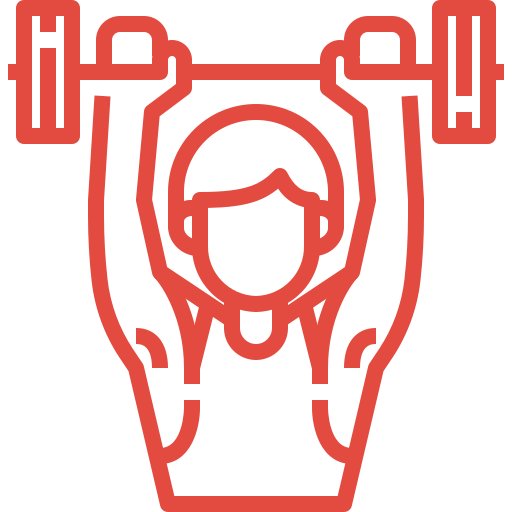Personal training offers a unique avenue for individuals recovering from addiction. It provides a structured approach that addresses both physical and emotional health. By focusing on personalized fitness plans, trainers can help clients build resilience and self-esteem. This integration of fitness into recovery not only fosters community support but also highlights the profound impact of tailored strategies. Exploring the multifaceted benefits of this approach reveals how fitness can be a transformative element in the recovery journey.
Key Takeaways
- Tailor treatment plans by assessing individual needs, strengths, and barriers to create a personalized approach to recovery through fitness.
- Incorporate regular physical activity to enhance emotional well-being and stimulate endorphin release, improving mood and reducing anxiety.
- Establish achievable fitness goals to empower individuals, boost self-esteem, and reinforce positive self-image during the recovery process.
- Include personal training sessions to provide structured workouts that promote stability and consistency in the recovery journey.
- Foster community support through group training activities, helping individuals build connections and a sense of belonging in their recovery.
Understanding Addiction and Its Impact on Physical Health
Addiction is a complex condition that profoundly affects not only the mind but also the body. Individuals struggling with addiction often experience a range of physical health issues, including weakened immune systems, cardiovascular problems, and nutritional deficiencies. Understanding these impacts is essential for both the individuals affected and their support networks. Acknowledging the intricate relationship between addiction and physical health is the first step in creating a personalized treatment plan for addiction. Such plans should consider medical evaluations, nutritional support, and tailored fitness regimens to promote overall well-being. By fostering a nurturing environment, individuals can reclaim their health and rebuild connections with themselves and others, paving the way for a more fulfilling life beyond addiction.
The Role of Fitness in Recovery From Addiction
Engaging in regular physical activity serves as a powerful catalyst for recovery from addiction. Fitness not only enhances physical health but also nurtures emotional and mental well-being. Incorporating exercise into recovery plans can provide essential support through various benefits, including:
- Improved Mood: Physical activity stimulates the release of endorphins, fostering a sense of happiness and reducing anxiety.
- Enhanced Social Connections: Group fitness activities cultivate community, allowing individuals to bond with others who share similar journeys.
- Structured Routine: Regular exercise establishes a sense of discipline and routine, countering the chaos often associated with addiction.
- Boosted Self-Esteem: Achieving fitness goals can empower individuals, reinforcing a positive self-image and a sense of accomplishment.
Key Components of Creating a Personalized Treatment Plan for Addiction
A holistic approach to recovery recognizes that each individual’s journey is unique, necessitating a tailored strategy for effective treatment. Key components of creating a personalized treatment plan for addiction include evaluating the individual’s specific needs, strengths, and barriers. Incorporating physical fitness as a core element can enhance emotional well-being and foster resilience. Establishing clear, achievable goals is crucial, guaranteeing that individuals feel a sense of accomplishment along the way. Additionally, integrating social support, such as group activities or partnerships with trainers, can promote connection and accountability. Finally, ongoing evaluation and adjustment of the plan guarantee it remains relevant and effective, empowering individuals to navigate their recovery journey with confidence and purpose. This collaborative process nurtures a sense of belonging and support.

Integrating Personal Training Into the Recovery Process
Integrating personal training into the recovery process offers a dynamic avenue for individuals seeking to reclaim their lives from addiction. This approach not only addresses physical fitness but also fosters mental and emotional well-being. A personalized treatment plan for addiction can benefit from personal training in several ways:
- Structured Routine: Establishing a consistent workout schedule helps create stability.
- Goal Setting: Achievable fitness goals empower individuals and build confidence.
- Community Support: Group training sessions cultivate a sense of belonging and camaraderie.
- Stress Relief: Physical activity serves as a healthy outlet for stress and emotional struggles.
Success Stories: Fitness Transformations in Addiction Recovery
While commencing on the journey of recovery from addiction, many individuals have discovered transformative success through fitness. These inspiring stories highlight the profound impact of physical activity in restoring not only health but also self-esteem and purpose. For instance, one individual, once trapped in addiction, found solace in group workouts, fostering a sense of community and belonging that was previously absent. Another regained confidence through personal training, setting and achieving fitness goals that mirrored their commitment to sobriety. Such transformations illustrate how creating a personalized treatment plan for addiction through fitness can lead to holistic recovery, offering not just physical benefits but also emotional resilience. These narratives inspire hope, demonstrating that recovery can indeed lead to a fulfilling and vibrant life.
Frequently Asked Questions
How Long Does It Take to See Results From Fitness in Recovery?
Results from fitness in recovery typically emerge within 4 to 8 weeks, depending on individual factors. Progress may vary, but consistency and commitment foster physical and emotional improvements, enhancing overall well-being and encouraging a supportive community.
Can Fitness Alone Replace Traditional Addiction Treatments?
Fitness alone cannot replace traditional addiction treatments, as thorough recovery often requires a multifaceted approach. Integrating fitness into personalized treatment plans can complement therapy, fostering emotional well-being and social connection while promoting overall health.
What Types of Exercises Are Best for Addiction Recovery?
Yoga, strength training, and aerobic exercises are particularly beneficial for addiction recovery. These activities promote physical health, enhance mood, and foster community, providing a supportive environment that encourages individuals to connect and heal together.
How Do I Stay Motivated During the Recovery Process?
Staying motivated during recovery involves setting achievable goals, celebrating small victories, and seeking support from others. Engaging in a community and finding joy in activities can foster resilience, enhancing commitment to the journey ahead.
Are There Specific Diets That Support Recovery Through Fitness?
Specific diets that support recovery through fitness often emphasize whole foods, lean proteins, healthy fats, and complex carbohydrates, providing essential nutrients that enhance energy levels, mood stability, and overall well-being, fostering a sense of community and belonging.
Conclusion
Incorporating personal training into addiction recovery offers a holistic approach that addresses both physical and emotional well-being. By creating tailored fitness plans, individuals can build resilience, boost self-esteem, and foster a sense of community. The journey to recovery is unique for everyone, but the empowerment gained through achievable fitness goals can greatly enhance this process. As more individuals embrace this integrated approach, the potential for lasting change and improved quality of life becomes increasingly attainable.
You May Also Like To Read:

